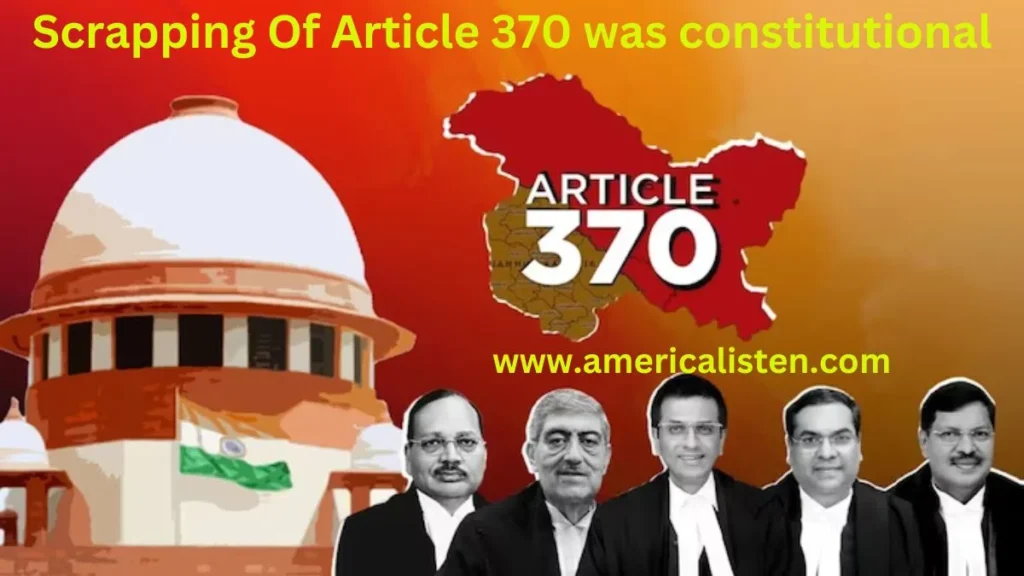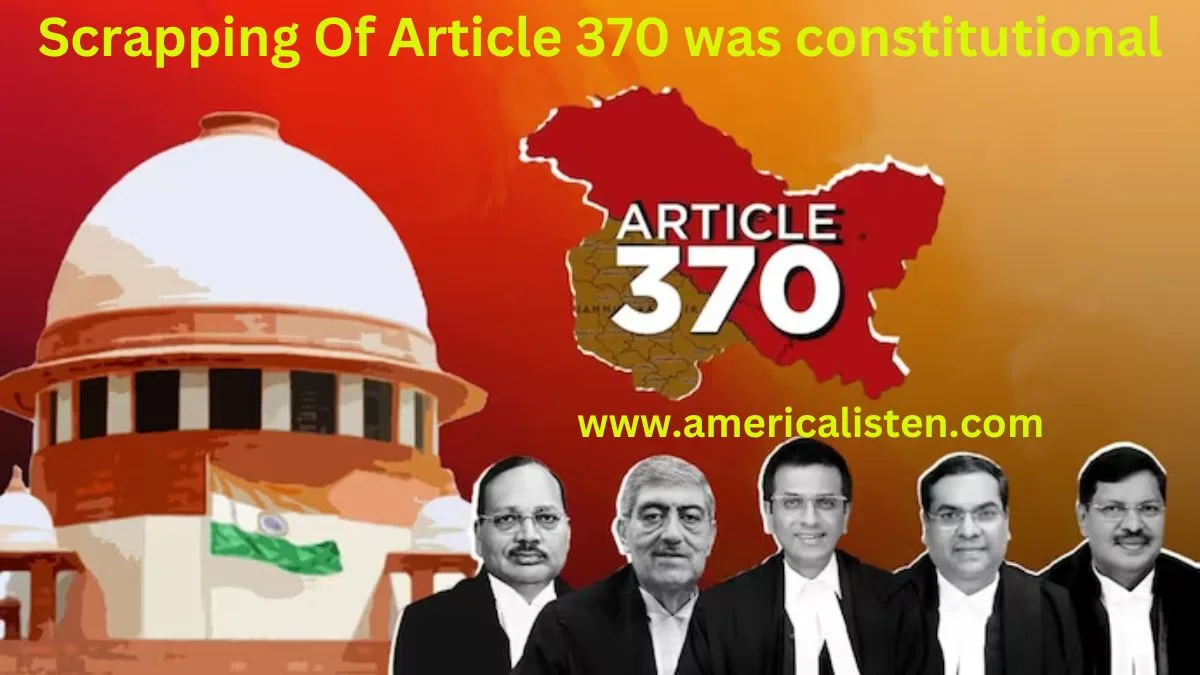India’s Supreme Court has confirmed the annulment of Kashmir’s special status, backing the government’s decision to revoke Article 370 in 2019. The constitutional provision had granted significant autonomy to the former state of Jammu and Kashmir, but Prime Minister Narendra Modi’s administration opted for its removal. Consequently, the region, home to over 12 million people, was bifurcated into two federally administered territories.

The court has mandated that elections be conducted in the area by September 2024 and urged the restoration of Jammu and Kashmir to statehood “at the earliest.” Chief Justice DY Chandrachud emphasized that the state does not possess internal sovereignty distinct from other states.
Justice SK Kaul, concurring with the decision, proposed the establishment of an “impartial truth and reconciliation commission” in Kashmir. This commission would investigate human rights violations committed by both “state and non-state actors” throughout the preceding decades.
You May like:
After Monday 11 December peaceful struggle for rights of J&K will continue :Omer Abdullah
To know More About Article 370 Please click Me
What was Article 370?
Article 370 was a provision in the Constitution of India that granted special autonomy to the region of Jammu and Kashmir. It was a temporary provision included in the Constitution when it came into effect on January 26, 1950. The article was part of the Instrument of Accession that the Maharaja of Jammu and Kashmir signed with the Indian government in 1947, allowing the princely state to accede to India.
Article 370 granted Jammu and Kashmir a significant degree of autonomy, allowing the state to have its own constitution and decision-making powers, except in matters related to defense, communications, and foreign affairs. The special status provided by Article 370 was meant to be a temporary measure, but it continued for several decades.
On August 5, 2019, the Government of India, led by Prime Minister Narendra Modi, took a historic step by abrogating Article 370 through a presidential order and a subsequent resolution passed by both houses of the Indian Parliament. This move effectively revoked the special autonomy of Jammu and Kashmir and reorganized the state into two separate union territories – Jammu & Kashmir and Ladakh. The decision was met with mixed reactions, domestically and internationally, and it led to significant changes in the political and administrative structure of the region.


